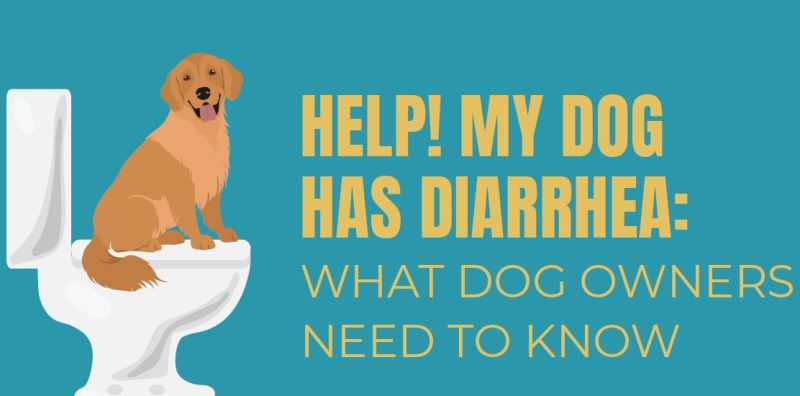Diarrhea in dogs can be alarming, especially when your pet appears otherwise healthy and energetic. If you find yourself asking, “Why does my dog have diarrhea but still act normal?” you are not alone. Many dog owners face this situation, and while it may seem puzzling, there are logical explanations for why this occurs.
In this comprehensive guide, we’ll discuss the causes, potential treatments, and preventive measures to help you care for your furry friend.
What Causes Diarrhea in Dogs?

1. Sudden Dietary Changes
One of the most common reasons for diarrhea in dogs is a sudden change in diet. If you’ve recently switched your dog’s food or introduced new treats, their digestive system may need time to adjust.
2. Food Intolerance or Allergies
Dogs can develop intolerances or allergies to certain foods. Ingredients like dairy, gluten, or artificial additives may trigger diarrhea even if your dog seems fine otherwise.
3. Eating Something They Shouldn’t
Dogs are naturally curious and often eat things they shouldn’t, such as garbage, spoiled food, or non-food items. These can irritate their stomachs and cause diarrhea without affecting their overall behavior.
4. Stress or Anxiety
Changes in routine, new environments, or separation anxiety can cause gastrointestinal upset in dogs. Stress-induced diarrhea may occur even if your dog appears active and happy.
5. Bacterial or Viral Infections
Mild infections caused by bacteria or viruses can lead to diarrhea. In some cases, dogs may not exhibit other symptoms, especially in the early stages.
6. Parasites
Intestinal parasites such as giardia, roundworms, or hookworms can cause diarrhea. Dogs may not always show signs of illness initially, making regular vet checkups essential.
7. Antibiotics or Medications
Certain medications, particularly antibiotics, can disrupt the natural gut flora and lead to diarrhea. This is often temporary and resolves after the medication course is completed.
8. Overeating or Rich Foods
Feeding your dog too many treats, fatty foods, or table scraps can overwhelm their digestive system and result in loose stools.
When Should You Be Concerned About Your Dog’s Diarrhea?
1. Duration of Symptoms
If your dog’s diarrhea lasts more than 24-48 hours, it’s time to consult a veterinarian. Prolonged diarrhea can lead to dehydration and other complications.
2. Presence of Blood or Mucus
Bloody or mucus-filled stools can indicate serious conditions like colitis, infections, or internal injuries. These require immediate medical attention.
3. Vomiting or Lethargy
While your dog may initially seem fine, symptoms like vomiting, lethargy, or a lack of appetite could signal a worsening condition.
4. Changes in Stool Color
Unusual stool colors, such as black (indicative of internal bleeding) or pale gray (potential liver issues), should not be ignored.
5. Weight Loss or Weakness
Rapid weight loss or signs of weakness may point to chronic conditions like malabsorption disorders or cancer.
How to Treat Diarrhea in Dogs at Home
1. Fasting Period
Allow your dog’s digestive system to rest by withholding food for 12-24 hours. Make sure they have access to clean, fresh water to prevent dehydration.
2. Introduce a Bland Diet
After the fasting period, introduce a bland diet consisting of boiled chicken and white rice. Feed small portions and gradually increase the quantity as their stool firms up.
3. Hydration is Key
Provide plenty of water to avoid dehydration. You can also offer electrolyte solutions recommended by your vet.
4. Probiotics for Gut Health
Probiotics help restore healthy gut bacteria and can speed up recovery. Ask your veterinarian for dog-specific probiotic supplements.
5. Avoid Over-the-Counter Medications
While it may be tempting to give your dog human medications like loperamide (Imodium), always consult your veterinarian before administering any drugs.
When to Visit the Vet
If your dog’s diarrhea doesn’t improve within 48 hours or if you notice additional symptoms like:
- Persistent vomiting
- Fever
- Extreme lethargy
- Signs of pain or distress
- Blood in stool
You should schedule a vet appointment immediately. Your veterinarian may perform tests like stool analysis, blood work, or imaging to determine the cause and recommend appropriate treatment.
Preventing Diarrhea in Dogs
1. Gradual Diet Changes
When switching your dog’s food, make the transition gradually over 7-10 days to allow their digestive system to adapt.
2. Monitor Their Diet
Avoid giving table scraps, fatty foods, or anything your dog isn’t accustomed to eating. Stick to high-quality dog food and treats.
3. Keep Their Environment Clean
Ensure your dog’s living space is clean and free of harmful substances they could accidentally ingest.
4. Regular Deworming
Follow a deworming schedule recommended by your vet to protect your dog from intestinal parasites.
5. Provide Stress Relief
Minimize stress by keeping a consistent routine and providing comfort during potentially stressful situations, like moving homes or introducing new pets.
6. Regular Vet Checkups
Annual checkups help detect underlying health problems early and keep your dog’s vaccinations and preventive treatments up-to-date.
Frequently Asked Questions About Dog Diarrhea
1. Can a Dog Have Diarrhea and Still Be Healthy?
Yes, dogs can have mild diarrhea and still act normal. Often, it’s caused by minor issues like dietary changes or stress and resolves within a day or two.
2. How Long Should I Wait Before Seeing a Vet?
If diarrhea persists for more than 48 hours or worsens, visit your vet immediately.
3. Should I Stop Feeding My Dog During Diarrhea?
It’s recommended to withhold food for 12-24 hours to allow the stomach to settle before reintroducing a bland diet.
4. What Foods Help Dogs Recover from Diarrhea?
Bland foods like boiled chicken and rice, pumpkin puree, and plain yogurt can help firm up stools and support digestion.
5. Can Stress Cause Diarrhea in Dogs?
Yes, stress or anxiety can trigger digestive issues in dogs, even if they appear outwardly fine.
Conclusion
Diarrhea in dogs, even when they seem otherwise healthy, is not uncommon. While it may result from minor causes like dietary changes or stress, persistent symptoms could signal more serious conditions. Monitoring your dog’s behavior, maintaining proper hydration, and offering a bland diet are often sufficient for mild cases. However, if symptoms persist or worsen, consulting a veterinarian is essential.
By understanding the potential causes and solutions, you can take proactive steps to ensure your dog stays healthy and happy. Always prioritize regular vet visits and a balanced diet to minimize the risk of digestive problems in the future.






